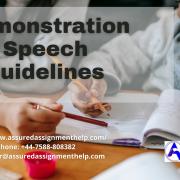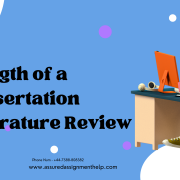Getting trained and working as an occupational therapist involves enhancing various skills within a person having a form of disability. Being new in the field of working as an occupational therapist, I have started engaging in learning various strategies that would be beneficial in providing not only assistance to people fighting disability but would also sharpen my skills as a therapist in this field. It is often believed that personal experiences are the best experiences that help a person in leading his or her life both on personal terms as well as professional terms. Saying so, what I mean is, rather than terming it as an opportunity I got a chance to deliver my skills as an occupational therapist to assist my brother who has orthopaedic injuries because of a massive car accident that he had gone through last year.
My brother has a total of twenty broken bones in the legs and arms, and even his backbone is badly injured experiencing a shift from its original position. This has made him confined to a wheelchair and he can barely make any movement on his own. In this connection, the theory of ableism can be connected as in most cases because of the disability a person is denied the majority of the aspects occurring in the society. These people are discriminated against in comparison to the ones who are blessed not to fight with any sort of disability. This discrimination or deprivation takes place because of certain stereotypical mentalities or beliefs like people confined to wheelchairs will also have issues with the brain and that their intellectual aspect is very poor. Similar was the case with my brother, who applied for a job having work from a home facility and was denied because of his disability to move about without assistance. There is surely no connection between broken bones or a shifted backbone with that of poor intellectualism. Because of false presumptions, people with disability suffer to a great extent as I have seen in the case of my brother.
As talked about the mindset of the people for people having any disability using the theory of ableism, there is yet another theoretical aspect that can be aligned. The aspect of occupational injustice dominates the life of the people suffering from any kind of disability despite having the ability in certain areas. Occupational injustice is in a way injustice that is exerted by the society on the disabled person after he or she has been declined any opportunity that he or she deserves to acquire. It can also be excluded from any job position despite having the potential to execute the job responsibilities effectively as well as efficiently. I have gained similar experiences with my brother as well. He has been forced to take up a job recently which is not of his choice and has been forcibly imposed upon him. This exerts an adverse impact on the life of the person who is already suffering from both physical and mental pain and trauma. The aspect of taking up a job or associating oneself with an occupation that which one has no interest results in restricting the aspect of satisfaction.
My brother was already going through intense physical pain and was also fighting mentally because the injury that resulted in his prevalent disability had not since birth. Therefore it was difficult for him to even accept that mentally and was fighting a mental battle at the same time. Thus, as an occupational therapist, I strongly believe that it is highly important that the person who is going through any disability that is not since birth and is because of certain accidents or unwanted incidents, must be given effective medical assistance that would help them get back or accomplish the health condition that is close to the normal medical conditions. In this connection, within the models of disability, the medical model holds great significance.
In the medical model, the disability of a person has been described as the incapacity of a part of the body or improper functioning of a body that is not acquired since birth. Therefore it can be aligned with this notion that the aim is to revert to the normal system or function recover to the most possible extent and lead a normal life or something close to leading a normal life. This model is suggestive of the fact that professionals having the required skills and experts can be involved in assisting the disabled person. Similar experiences I have with dealing with my brother matter. I tried to motivate him when he was morally too low because of getting rejected from his dream job owing to his medical condition and the fact that he had to accept a job in which he had no interest. The person needs to be motivated and he or she needs to embrace life accept the changes and try to deal and fight with those changes. This would assist them in recovering slowly from the intensely worse conditions and also give them mental strength which is highly required for fighting against any odds in life.
As an occupational therapist, I always engaged myself to make sure that my brother is mentally motivated and I would also use to work and am continuing to work on recovering the gross-motor skills of my brother. This is because of broken bones in both legs and arms and a shift in the backbone resulted in a lot of operations and damaged the ability of his body to move about or do any work independently. It was highly difficult for him to even get up and walk around. In the case of disability, many people are subject to the issue of intersectionality because disability is often reflected in poverty. Because disability restricts one from doing any job or loss of occupation, it results in poverty. It also involves considering the aspect that not all are blessed with the potential to afford the line of treatment in treating any form of disability. The accommodations and assistance that are needed in case of disability are way too expensive in most cases. However, my brother’s case was luckily not the same and by God’s grace, we managed to deal with the situation smoothly without facing many difficulties in the line of treatment.
In connection with practicing as an occupational therapist in the future as well, I would like to abide by the theory of the Allen Cognitive Disabilities Model where this tool would assist me in better execution of my work. This is because it would help in better recognition of the functional cognition of a person with a disability. This would also help me recognize the person’s cognition and his or her willingness to execute certain tasks. In addition to this, I think those people who do not have disabilities since birth, as seen in the case of my brother, must deal with the emotional aspects first. This would help in keeping their mental aspect strong which helps a lot to fight back the physical ailments. In connection with this, the Kawa Model can be perfectly incorporated while engaging in conversation with a client in the future. This model utilizes the natural metaphor and relates a person’s journey of life with that of the flow of the river. Just like a river, a person’s life also has ups and downs and one needs to know how to adjust and adapt. Mental strength helps a lot in boosting confidence in people having disabilities.
In the future practice as experienced at the time of dealing with my brother’s condition, I would first provide mental relaxation assistance followed by working on the cognitive skills. This would help the person fight with the odds having already acquired mental strength. There must be the inclusion of practical strategies that would help enhance the role of an occupational therapist and help the person having disabilities. For this reason, there also needs to be an action plan involved that would help in accomplishing skills needed to have the potential set strategies. Promoting a positive mindset and behavior is an effective strategy that needs to be incorporated for developing the mental aspect of people with disability. Setting routines for various types of clients and having the skill to understand which set of rules will work for various causes and types of disabilities. The strategy must also include inclusion of participation in the activities that are used for enhancing skills like gross-motor skills in people experiencing disability.
Action plan
| STRATEGIES | Promotion of a positive mindset | Setting effective routines and schedules | Active participation of the clients’ |
| SKILLS REQUIRED | Optimist, Supportive | Understanding and good recognition skills | Engaging in better discussions and intervention; good communication skills |
| RESOURCES | Experiences gathered, case studies | Experiences gathered, case studies | Reading books on communication skills |
| TIME NEEDED | 2 months | 5 months | 4 months |











